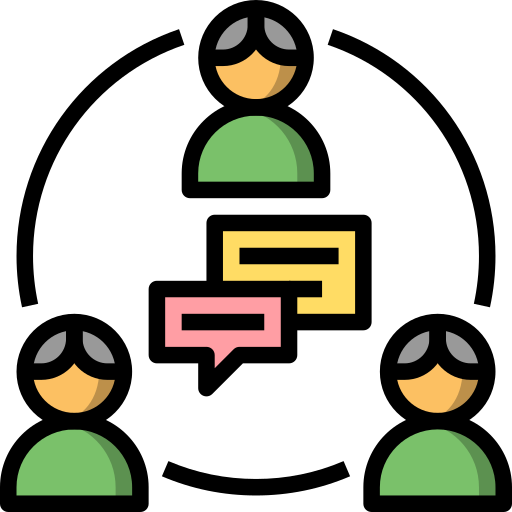IMPLEMENTATION
Understanding ERP: Packages in the Market and Implementation in Organizations
What is ERP?
Enterprise Resource Planning (ERP) systems are integrated software platforms used by organizations to manage and streamline their core business processes. ERP systems integrate various functional areas such as finance, human resources, procurement, manufacturing, supply chain, and customer relationship management into a single unified system. This integration allows for real-time data sharing across departments, improving efficiency, accuracy, and decision-making capabilities.
Key Features of ERP Systems
- Integration: ERP systems unify various business processes into a single system, facilitating seamless data flow and communication between departments.
- Real-time Operations: Real-time data access ensures that information is current and accurate, which is critical for decision-making.
- Common Database: A central database reduces redundancy and ensures data consistency across the organization.
- Modular Architecture: ERP systems are typically modular, allowing organizations to implement modules relevant to their specific needs and scale as required.
- Automation: ERP automates routine tasks, reducing manual effort and the likelihood of errors.
ERP Packages in the Market
Several ERP packages are available in the market, each catering to different business sizes and industries. Some of the prominent ERP solutions include:
-
SAP ERP:
- Overview: SAP is one of the leading ERP providers globally, known for its comprehensive and robust solutions tailored for large enterprises.
- Features: SAP ERP includes modules for finance, sales, procurement, human resources, and more. It offers advanced analytics and integration capabilities with other SAP products and third-party applications.
- Industry Fit: Suitable for large, complex organizations across various industries such as manufacturing, retail, finance, and healthcare.
-
Oracle ERP Cloud:
- Overview: Oracle ERP Cloud is a cloud-based solution known for its flexibility and scalability.
- Features: It provides modules for financial management, project management, procurement, risk management, and more. Oracle ERP Cloud leverages AI and machine learning for enhanced analytics and process automation.
- Industry Fit: Ideal for mid to large-sized organizations in sectors like finance, education, government, and retail.
-
Microsoft Dynamics 365:
- Overview: Microsoft Dynamics 365 combines ERP and CRM capabilities into one platform, offering a holistic approach to business management.
- Features: Key features include finance and operations, sales, customer service, marketing, and field service. It integrates seamlessly with other Microsoft products like Office 365 and Azure.
- Industry Fit: Suitable for small to mid-sized businesses, particularly those already using Microsoft products.
-
Infor ERP:
- Overview: Infor offers industry-specific ERP solutions, focusing on delivering specialized functionalities.
- Features: Infor ERP includes modules for finance, human capital management, supply chain, production, and more. It utilizes a user-friendly interface and advanced analytics.
- Industry Fit: Well-suited for industries like manufacturing, healthcare, automotive, and public sector.
-
NetSuite ERP:
- Overview: NetSuite, a product of Oracle, is a cloud-based ERP solution designed for small to mid-sized businesses.
- Features: NetSuite provides comprehensive modules for financial management, CRM, e-commerce, inventory, and order management. It is known for its quick deployment and scalability.
- Industry Fit: Ideal for growing businesses in retail, software, wholesale distribution, and professional services.
Implementation of ERP in an Organization
Implementing an ERP system is a complex and critical project that requires careful planning and execution. The following steps outline a typical ERP implementation process:
-
Needs Assessment and Planning:
- Identify Business Requirements: Understand the specific needs and challenges of the organization. This involves engaging stakeholders from various departments to gather requirements.
- Define Objectives and Scope: Clearly define the objectives of the ERP implementation and the scope of the project. This includes identifying which processes will be integrated and what outcomes are expected.
-
Vendor Selection:
- Evaluate ERP Solutions: Research and evaluate different ERP packages to determine which one best fits the organization’s needs.
- Request for Proposal (RFP): Issue an RFP to shortlisted vendors, asking for detailed proposals on how their ERP system can address the organization’s requirements.
- Vendor Demos and Assessment: Conduct vendor demonstrations and assess the proposals based on functionality, ease of use, scalability, cost, and vendor support.
-
Project Planning and Team Formation:
- Form an Implementation Team: Assemble a team comprising internal staff and external consultants with expertise in ERP systems.
- Develop a Project Plan: Create a detailed project plan outlining the timeline, milestones, resource allocation, and budget. Ensure the plan includes risk management strategies.
-
System Design and Customization:
- Business Process Mapping: Map existing business processes and identify areas for improvement.
- System Configuration: Configure the ERP system to match the organization’s workflows. This may involve customizing modules, defining user roles, and setting up permissions.
- Data Migration: Plan and execute data migration from legacy systems to the new ERP system. Ensure data accuracy and integrity during the migration process.
-
Testing and Training:
- System Testing: Conduct extensive testing to ensure the ERP system functions correctly and meets the defined requirements. This includes unit testing, integration testing, and user acceptance testing (UAT).
- User Training: Develop and deliver comprehensive training programs for end-users. Training should cover system navigation, process execution, and troubleshooting.
-
Go-Live and Support:
- Go-Live Preparation: Prepare for the go-live phase by finalizing data migration, conducting final system checks, and ensuring all users are trained.
- Go-Live Execution: Transition to the new ERP system, ensuring minimal disruption to business operations. Provide on-site support to address any immediate issues.
- Post-Go-Live Support: Establish a support structure to address post-implementation issues, gather user feedback, and make necessary adjustments.
-
Continuous Improvement:
- Monitor System Performance: Regularly monitor the ERP system’s performance and its impact on business processes.
- Gather Feedback: Collect feedback from users to identify areas for improvement and additional training needs.
- Update and Optimize: Continuously update the ERP system with new features, patches, and enhancements to keep it aligned with business objectives and industry standards.
Conclusion
ERP systems play a pivotal role in modern organizations by integrating various business processes into a single, cohesive system. The market offers a wide range of ERP solutions, each tailored to different organizational sizes and industry requirements. Successful implementation of an ERP system requires meticulous planning, careful vendor selection, thorough testing, and ongoing support. When executed effectively, an ERP system can significantly enhance operational efficiency, data accuracy, and decision-making capabilities, ultimately driving organizational growth and success.
UPGRADES
Techno-I will help you reduce costs, improve business agility, accelerate time-to-value, and fast pace the integration of your existing systems into the public/on-premise cloud environment. Our goal is to help our clients increase their operation efficiency and improve productivity without the need to worry about implementation issues, security breach or any other technical problems.
INTEGRATION
Deploy fast-to-market applications (Web, Mobile, Data-center solution) backed by latest cloud technologies. We stay at the forefront of innovation, backed by the team of leading experts with integration experience in SAP, Sales Force, ZOHO etc.We understand your need for cloud integration of your back-end application and secure data management and our experts will help you integrate with the right solutions and tools for speedy implementationthat fit your business needs.
ROLL OUTS
We understand the evolving the landscape of technology and the need to integrate, support real time applications for businesses of all size. Our experts provide enterprise-wide data and services integration, helping them plan a sound cloud integration strategy and overcome their constraints.
Talk to us about your business requirement?
Whether its re-engineering your legacy application or integrating your application back-end to cloud through integration platform, Techno-I’s certified team of cloud engineers will help you transform your IT infrastructure,providing an end-to-end, hybrid cloud integration platform that monitors, manages, and orchestrates cloud service and application connectivity for on-premises and off-premises resources.
We help you migrate to a new platform or new approach quickly with minimal downtime.Our Cloud Integration services include, but not limited to:
ERP CLOUD
Techno-I will help you reduce costs, improve business agility, accelerate time-to-value, and fast pace the integration of your existing systems into the public/on-premise cloud environment. Our goal is to help our clients increase their operation efficiency and improve productivity without the need to worry about implementation issues, security breach or any other technical problems.
AMC
Digital transformation is a reality for every company. But transforming an existing IT infrastructure is no simple task. Enterprises are looking to bring real, lasting change to their businesses. Achieving digital transformation and creating an agile, scalable enterprise demands an innovative approach for managing the delivery and operation of applications across hybrid cloud environments.



